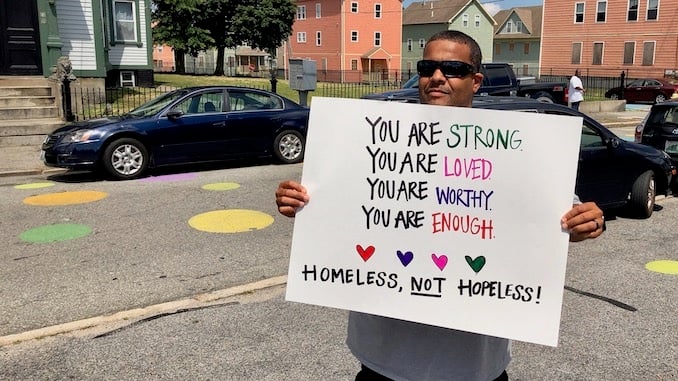Audrey Mead: They are us
“They are us.” The thought reverberated in my head as we walked past the 20-something couple that looked so much like my husband and I. They were sitting on the curb, like so many other people experiencing homelessness I had seen while walking around Los Angeles that weekend. Well, not exactly – most of the people experiencing homelessness in that
August 19, 2019, 4:44 pm
By Audrey Mead
“They are us.”
The thought reverberated in my head as we walked past the 20-something couple that looked so much like my husband and I. They were sitting on the curb, like so many other people experiencing homelessness I had seen while walking around Los Angeles that weekend. Well, not exactly – most of the people experiencing homelessness in that area sat with their backs against the wall, usually alone and blank-faced. This couple was different; from how they sat there, holding hands, to the emotions on their pained faces, to even the way they sat forward on the curb – something told me they hadn’t been on the street for very long.
What had brought them to sitting on streets wealthier people wouldn’t allow their dogs to walk on without booties? How could people so similar to myself end up homeless?
On any given night 1,055 Rhode Islanders will experience homelessness. By most estimates, 4,000-5,000 Rhode Islanders will experience homelessness in a year. Statistically, the top two causes of homelessness are a simple lack of affordable housing and unemployment, according to the National Law Center on Homelessness and Poverty. Coming from a privileged background myself, I’ve still experienced periods of unemployment in my career. I’ve never been able to afford a place on my own despite being an engineer by degree. I always had roommates before I was married; now I share housing costs with my husband. How far was I at any of those points of unemployment from being one-half of that couple? How far are any of us, really?
We need our laws to recognize the inherent dignity and worth of every person, regardless of housing status. Policies that criminalize what people must do to survive, such as anti-panhandling laws, don’t end homelessness but make our neighbors experiencing homelessness invisible. “Out of sight, out of mind” is a shameful basis for policy. Our elected officials can no longer look away: they must face this issue head on.






